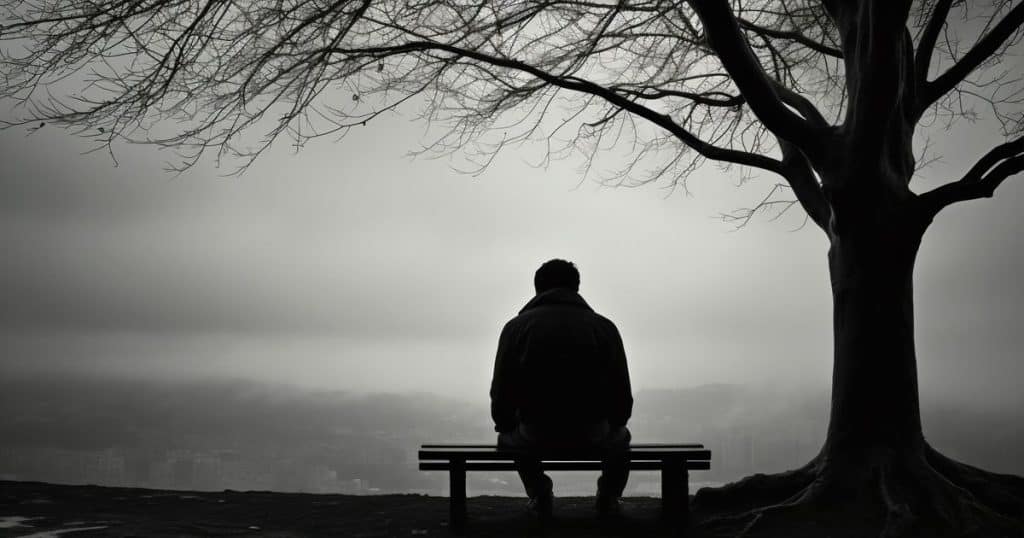I’m here today to share a personal story and a profound, bittersweet memory from my childhood that you may be able to relate to and hopefully learn a thing or two from.
Around the last years of elementary school, certain differences between me and my fellow classmates had gradually begun to come to my attention.
I never took part in the post-school video game marathons, I played basketball in a sea of soccer aficionados, and what troubled me the most was the borderline bullying tendencies that had infiltrated my close-knit circle of friends.
Among them was one boy who stood out as my closest confidant – let’s call him Charlie for simplicity’s sake.
Together, Charlie and I celebrated birthdays, played, laughed, and strolled hand in hand from school to the after-school club. For as long as I could remember, I had worn our friendship like a badge of honor, and he reciprocated.
‘Best friends’ was the proper term.
However, in recent times, I couldn’t help but notice a significant shift in Charlie’s behavior towards me.
After an ordinary day at school, we went on our usual half-mile trek to the after-school club, as another classmate, Christopher, decided to tag along.
As of late, Christopher and Charlie were practically inseparable. They resided in the same apartment complex, their parents shared a close bond, and the boys even played on the same soccer team.
As we jogged down the sidewalk, I allowed Charlie and Christopher to lead the way as I sagged behind and watched the two engrossed in boisterous laughter and playful shoves – the camaraderie typical of boys that age. Suddenly, I was struck by an acute realization that felt like a punch to the stomach: I was an outsider.
Buried in sadness, I continued sagging behind and understood that they had completely forgotten about my presence.
I felt overlooked. Ignored. Invisible.
In a bid to test the depth of their oblivion, I decided to completely stop trailing them to observe from afar if they would even notice my absence.
Shortly, my suspicions were dishearteningly validated. Not once did they look behind to see if I was still there.
I was invisible. I realized in that moment that the person I had labeled as my best friend, no longer shared this title with me.
I veered from the usual path with a heavy heart and sought refuge in a small treehouse near the after-school club that we had built earlier that year. On this particular day, the weather perfectly reflected my state of mind, as a gentle rain descended from the gray, somber sky.
I tossed my school bag on the wet ground and smoothly scaled the tree. Here, I sat in silence on a sturdy branch, as I allowed my tears to flow freely.
I was overwhelmed, grappling with the realization that I was somehow different from the other boys.
Something deep inside me, very close to the fabric of my being, was no longer accepted or appreciated among my peers. But why?
I had always prided myself on being kind, caring, and compassionate. Yet, there I was, sitting in a lonely tree, feeling like an outsider – an old soul in a sea of children.
Table of Contents
A Boy’s Quest for Belonging
So, what does a young boy do when he recognizes his square peg in a world of round holes?
He adapts. Like a chameleon, he changes his colors in order to “survive”.
This is an adaptive mechanism deeply embedded in the human psyche, a subconscious response to shield us from further emotional damage. Better safe than sorry, right?
In the following years, I vividly recall the daily battle of trying to blend in. I tweaked my words, upgraded my wardrobe, and I even adjusted my outspoken beliefs to match the voice of the mainstream.
Depending on the person I was talking to, I tailored my tone to align with their expectations while my true self remained concealed, drifting further and further away from my consciousness.
A big part of me was gripped by fear of showing my authentic, softer nature knowing that this could very well mean that I’d be subject to bullying, ostracizing, or ‘being called a wimp’. It was this profound fear that drove me to blend in – even if it meant that I had to be rude, deceitful, or aggressive.
I quickly became fluent in “cool guy”, and after a while, this persona had fully merged with my sense of identity. My true, compassionate self remained buried beneath layers of pain and insecurity.
What’s fascinating is that this shift happened on a completely subconscious level. Not once was I instructing myself to change my behavior to fit in. In fact, I remained painfully unaware of my metamorphosis until many years later.
Honesty Heals
It was only until about a year ago that the distant memory of the young, innocent boy in the treehouse crept back into my awareness – maybe in a dream. Of course, this prompted some deep thinking.
The boy in that treehouse went through something we all inevitably go through at some point in our childhood – a life-altering sensation known as ‘heartbreak’.
Heartbreak is a universal facet of the human journey and may very well be the biggest teacher in life as it teaches you how to navigate pain (if only you choose to listen).
Pain, in its raw form, is completely natural and, to some degree, expected, but pain that you choose to hold on to becomes suffering. Suffering is a decision because you always possess the ability to work through the initial pain.
As an adult, you hold the power (and responsibility) to confront the pain that you, through no fault of your own, endured as a child. You now stand before a choice.
Do you confront the pain head-on or conceal it? Do you suppress your painful emotions or express them?
The ball is entirely in your court!
To heal and rediscover your true self, often referred to as your ‘inner child’, you must turn your gaze inward and confront the demons of your past no matter how unsettling this may feel.
When it comes to suppressed emotions, the only way forward is to look backward.
Why, you might wonder?
Because true healing is impossible if you refuse to acknowledge your bleeding wounds.
The Unmasking
For me, a major turning point occurred when I took control and made the executive decision to be brutally honest with myself and the pain from my past.
After this decision, I began to notice the moments where I slightly altered my behavior to meet the expectations of others. I recognized instances where I twisted the truth to present myself in a more favorable light, and I acknowledged my pervasive fear of being the odd one out.
Finally, I accepted the uncomfortable truth that I was paralyzed by the fear of judgment, of seeking others’ approval as a result. When I did not instantly find this approval, fear would set in, subconsciously bringing forward my defense mechanisms.
I also became aware of how draining it was to be someone other than my true self. Simple conversations left me emotionally drained, and I even began avoiding certain individuals who I knew would compel me to throw on the mask.
The charade was exhausting, and I had grown tired of acting.
I understood this fearful tendency now – where it came from, why it was there, and I knew I had to get rid of it.
When confronted with fear, the best thing you can do is to dissect it because, most of the time, fear is highly irrational and when you question it, truth emerges.
I analyzed it and asked: Why do these specific interactions trigger me so deeply? Why does it even matter if they agree with me or like me?
As the author Bernard M. Baruch put it:
“Be who you are and say what you feel, because those who mind don’t matter, and those who matter don’t mind.”
I was not put on this Earth to be liked. I am here to be authentic to myself, and my path, and become all the good that I can be.
One fine day, the idea struck me to make a long list of all the activities that typically filled my day – from brushing my teeth in the morning to watching TV at night. I questioned which of these habits brought me peace, ignited my passion, and boosted my energy, and I methodically crossed the items off the list that didn’t seem to align with the man I wanted to become.
It is the little, ‘insignificant’ habits in your daily life that add up over time to create the image of the man or woman you see when you look in the mirror.
Soon, journaling, meditation, and yoga gradually emerged as staples in my daily routine, accompanied by mindfulness practices like honesty, integrity, and compassion. I suddenly found myself amid a spiritual awakening, and my true self re-emerged from the shadows – this was empowering and deeply inspirational!
On my journey of personal growth, I learned so many new things about myself that had previously been unexplored. I discovered my passion for music, books, and writing, and a growing wish to share my lesson began to take root, fueled by a desire to make a meaningful impact in the world – even if it’s just a small one.
The Moral of the Story
This story of self-discovery and authenticity carries a lesson that transcends time and age: The journey to acceptance starts with welcoming your authentic self.
In a world dominated by societal expectations, peer pressure, and often the pursuit of external validation (especially among children), it is remarkably easy to lose touch with your genuine identity. The fear of judgment and rejection can be so massive that it sends you in the wrong direction.
The quest for conformity exists only in your mind, and as I came to understand through my own experiences as a young man, it only results in a disconnect from your innermost being which is always to be loved and appreciated.
It wasn’t until about a year ago, while navigating the Florida roads on a rainy day, that a paradoxical truth brought tears of clarity to my eyes: The moment I stopped trying to fit in was that moment I stopped feeling like an outsider.


